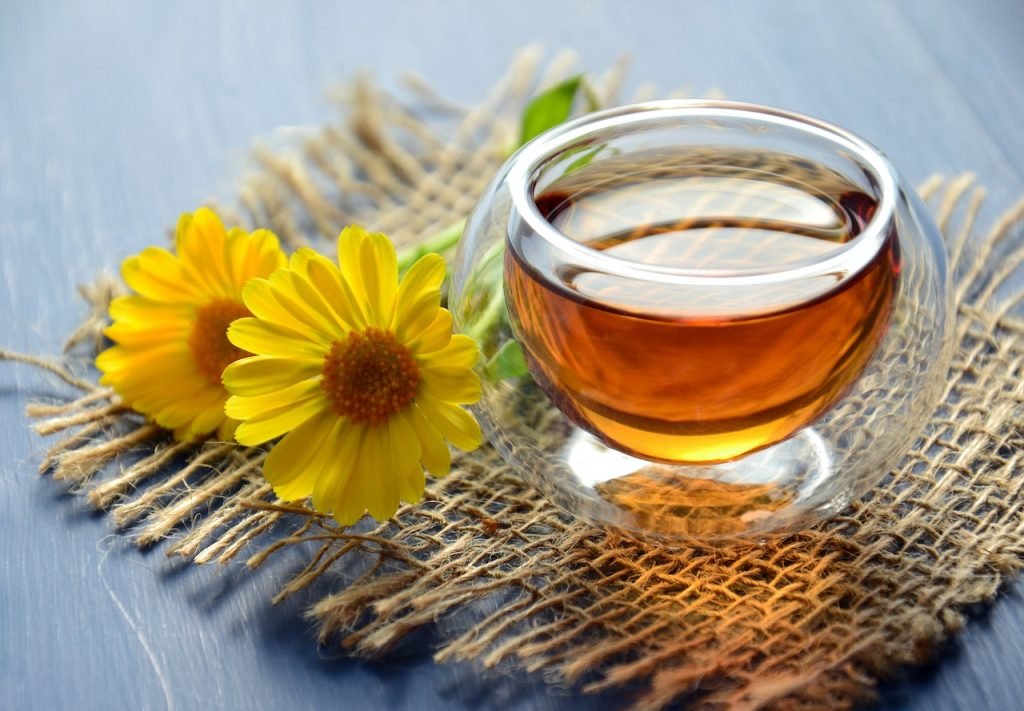Herbal Tea Market Share, Size, Trends, Growth, Analysis, Report & Forecast 2024-2028
Herbal Tea Market Size and Share
The Global Herbal Tea Market has been steadily growing and is expected to continue its upward trajectory in the coming years. According to Expert market research (EMR), the herbal tea market was valued at USD 3.59 billion in 2022 and is projected to reach USD 5.25 billion by 2028, registering a CAGR of 6.61% during the forecast period. This growth can be attributed to the increasing awareness among consumers about the potential health benefits of herbal teas, as well as the growing demand for natural and organic products.
Regionally, Asia-Pacific is expected to dominate the herbal tea market during the forecast period, followed by Europe and North America. Countries like China and India, known for their rich herbal heritage and traditional medicine practices, are major contributors to the growth of the herbal tea market in the Asia-Pacific region. In addition, the growing trend of health and wellness, along with the increasing adoption of natural and organic products, has also fueled the demand for herbal teas in Europe and North America.

Price Trends of herbal tea market
The price of herbal teas varies depending on various factors such as the type of herb used, processing methods, packaging, and brand. Herbal teas made from rare and exotic herbs tend to be more expensive compared to those made from common herbs. Additionally, organic herbal teas are generally priced higher due to the use of natural and sustainable farming practices. Packaging also plays a role in determining the price, with premium teas often packaged in high-quality materials to maintain freshness and flavor.
Trends of the Herbal Tea Market
Several key trends are shaping the herbal tea market, catering to the evolving preferences of consumers. Some of the notable trends in the industry include:
Growing demand for functional herbal teas: Consumers are increasingly seeking herbal teas that offer functional benefits beyond taste. Herbal teas infused with additional health-promoting ingredients such as antioxidants, vitamins, and minerals are gaining popularity among health-conscious consumers.
Increasing interest in traditional and exotic herbal teas: Traditional and exotic herbal teas from different regions of the world are gaining attention for their unique flavors and potential health benefits. Teas such as matcha, yerba mate, and rooibos are becoming popular choices among consumers looking for new and diverse options.
Focus on sustainability and eco-friendly packaging: As environmental concerns become more prominent, consumers are seeking herbal teas that are produced using sustainable and eco-friendly practices. Brands that prioritize eco-friendly packaging, such as biodegradable or compostable materials, are gaining favor among environmentally conscious consumers.
Expansion of online sales channels: With the increasing penetration of e-commerce, online sales channels for herbal teas are witnessing significant growth. Many consumers are opting for online purchases due to the convenience, wider variety, and accessibility of herbal teas from around the world.

Growth Drivers of the Herbal Tea Market
The herbal tea market is driven by various factors that are contributing to its growth. Some of the key drivers include:
Increasing awareness about the health benefits of herbal teas: As consumers are becoming more health-conscious, the demand for natural and organic products with potential health benefits is on the rise Herbal teas are known for their various health benefits, including antioxidant properties, immune-boosting effects, relaxation and stress-relief properties, digestive support, and more. This growing awareness about the potential health benefits of herbal teas is driving the demand for these products among health-conscious consumers, thus contributing to the growth of the market.
Shift towards natural and organic products: With the increasing concerns about synthetic ingredients and chemicals in food and beverages, consumers are seeking natural and organic options. Herbal teas, being made from natural plant-based ingredients, align with this growing consumer preference for clean and natural products. The demand for organic herbal teas, in particular, is witnessing significant growth as consumers are willing to pay a premium for teas that are free from pesticides, chemicals, and other harmful substances.
Changing consumer lifestyle and preferences: Lifestyle changes, including rising stress levels, busy schedules, and a growing focus on wellness and self-care, are driving the demand for herbal teas. Herbal teas are often perceived as a healthier alternative to caffeinated beverages like coffee and traditional tea, as they are naturally caffeine-free and offer various health benefits. Moreover, consumers are now seeking diverse flavor profiles and unique taste experiences, which herbal teas can provide with their wide range of flavors, including floral, minty, spicy, and fruity options.
Innovative product offerings: The herbal tea market is witnessing innovative product offerings, including blends with different herbs and botanicals, unique flavor combinations, and functional teas that cater to specific health needs. Manufacturers are constantly introducing new and creative herbal tea products to cater to the evolving consumer demands, which is driving the growth of the market.

Industry Outlook and Forecast for herbal tea market
The herbal tea market is expected to continue its growth trajectory in the coming years. Market research suggests that the global herbal tea market is projected to grow at a CAGR of 6.61% from 2023 to 2028, reaching a value of USD 5.25 billion by the end of the forecast period. Factors such as increasing consumer awareness about the health benefits of herbal teas, growing interest in traditional and exotic teas, rising demand for natural and organic products, and innovative product offerings are expected to drive the growth of the market.
However, the market also faces some challenges, including the availability and quality of raw materials, regulatory compliance, and competition from other healthy beverage options. Manufacturers need to ensure the sourcing of high-quality herbs and botanicals for their teas, comply with regulatory standards and certifications, and differentiate their products in a competitive market to sustain and grow their market share.
FAQs about herbal tea market:
Q: What are herbal teas?
A: Herbal teas are beverages made from the infusion or decoction of herbs, spices, flowers, fruits, or other plant-based ingredients in hot water. They are also known as tisanes and are often consumed for their potential health benefits.
Q: What are the health benefits of herbal teas?
A: Herbal teas are known for their various health benefits, which may include antioxidant properties, immune-boosting effects, relaxation and stress-relief properties, digestive support, and more. The specific health benefits depend on the type of herbs used in the tea.
Q: Are herbal teas caffeine-free?
A: Yes, most herbal teas are naturally caffeine-free, which makes them a popular choice for individuals who are sensitive to caffeine or looking for caffeine-free beverage options.
Q: Can herbal teas be consumed by everyone?
A: In general, herbal teas are considered safe for most people to consume. However, it’s always recommended to consult with a healthcare professional, especially if you have any pre-existing health conditions or are pregnant, before adding herbal teas to your diet.
Q: Are herbal teas organic?
A: Not all herbal teas are organic, but there is a growing demand for organic herbal teas among consumers who prefer natural and organic products. Many manufacturers now offer organic herbal tea options that are free from pesticides, chemicals, and other harmful substances.
Q: Where can I buy herbal teas?
A: Herbal teas can be purchased from various sources, including grocery stores, specialty tea shops, health food stores, online retailers, and even some cafes and restaurants. They are available in loose leaf, tea bag, and powdered forms.
Q: How do I brew herbal tea?
A: The brewing instructions for herbal tea may vary depending on the specific type of tea and manufacturer’s recommendations. In general, herbal teas are steeped in hot water for a certain duration, typically ranging from 5 to 10 minutes, and then strained or removed from the water.
Q: Can herbal teas be used for cooking or baking?
A: Yes, herbal teas can be used in cooking or baking to add unique flavors and aromas to recipes. For example, some herbal teas like chamomile or lavender can be used in desserts or as a flavoring in sauces or dressings.
Q: Can I mix different types of herbal teas together?
A: Yes, many herbal teas can be blended together to create unique flavor combinations and enhance the overall taste. Experimenting with different herbal tea blends can be a fun and creative way to enjoy herbal teas.
Q: What are some popular types of herbal teas?
A: Some popular types of herbal teas include chamomile tea, peppermint tea, ginger tea, hibiscus tea, lavender tea, echinacea tea, and lemon balm tea, among others. These teas are known for their distinct flavors and potential health benefits.
Media Contact:
Company Name: Claight Corporation
Contact Person: Alex Steven, Business Consultant
Email: sales@expertmarketresearch.com
Toll Free Number: US +1-415-325-5166 | UK +44-702-402-5790
Address: 30 North Gould Street, Sheridan, WY 82801, USA
Also. check http://infomanics.com/?p=1119



